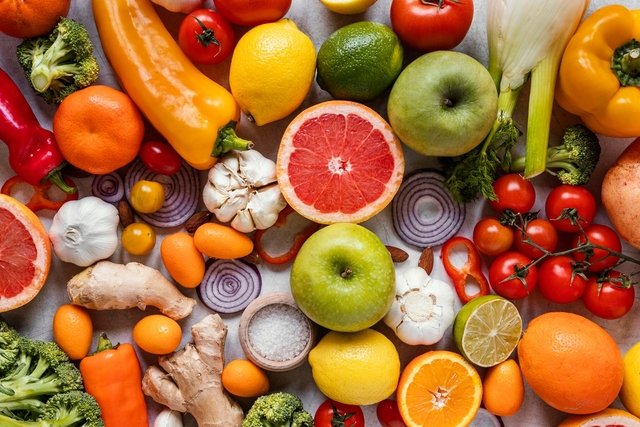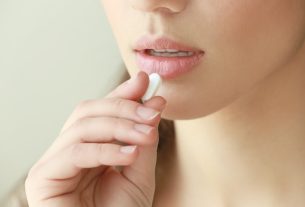Quercetin is a flavonoid present in several foods, such as apples, acerola, buckwheat and peppers, and which provides many health benefits, such as preventing high blood pressure, reducing inflammation and preventing premature aging.
The benefits of quercetin are possible due to the high antioxidant and anti-inflammatory power that this flavonoid has, fighting inflammation and free radicals in the body, preventing damage to the cells and DNA that fight inflammation.
In addition to food, quercetin can also be obtained in the form of food supplements, which are sold in health food stores and pharmacies, alone or in combination with other nutrients, such as zinc and Vitamin C.

What is it for
The main indications of quercetin for health are:
1. Helps lower high blood pressure
Quercetin is a flavonoid with relaxing and anti-inflammatory properties, which promotes the relaxation of blood vessels, facilitating blood circulation and helping to lower high blood pressure. Discover other foods that help lower high blood pressure.
However, more studies in humans are needed to confirm whether quercetin can be used to complete the treatment of high blood pressure.
2. Decreases inflammation
Quercetin reduces inflammation because it regulates the release and action of inflammatory compounds in the body, such as interleukins and tumor necrosis factor alpha, catalase and nitric oxide.
Thus, quercetin can be indicated to complement the treatment of inflammations such as rheumatoid arthritis, cystitis and inflammatory bowel disease, for example.
3. Prevents cardiovascular diseases
Quercetin is a bioactive compound with antioxidant and anti-inflammatory action, which improves artery health and prevents the formation of thrombi, preventing the emergence of cardiovascular diseases, such as high blood pressure, stroke, heart attack and atherosclerosis.
4. Prevents premature aging
By combating excess free radicals in the body, quercetin prevents oxidative stress in healthy skin cells, preventing wrinkles, sagging and premature aging.
5. Regulates glucose
Quercetin protects the pancreas cells responsible for releasing insulin against the action of free radicals, regulating blood glucose levels and thus helping to prevent insulin resistance and diabetes.
6. May Help Prevent Cancer
Quercetin is a flavonoid with powerful antioxidant action, which prevents the growth and causes the death of cancer cells, and can prevent and combat liver, lung, breast and prostate cancer.
However, studies on humans are still needed to confirm the benefits of quercetin in cancer prevention and treatment.
Does quercetin help treat COVID-19?
Some studies (1), (2), (3) have shown that quercetin can be used to complement the treatment of COVID-19, as this flavonoid appears to have antiviral action.
However, more studies with humans must be carried out to confirm these possible benefits of quercetin in the treatment of COVID-19.
Quercetin-rich foods
The following table shows the amount of quercetin in every 100g of some foods:
Other foods that contain quercetin in smaller amounts are unpeeled apples, lemon juice, cherries, blueberries, plums, strawberries, tomatoes, spinach, green tea and broccoli.
When to use supplements
Quercetin supplements may be indicated to help prevent or treat cardiovascular diseases, arthritis and diabetes, for example.
This supplement is sold in the form of capsules, alone or in combination with other nutrients, such as zinc and Vitamin C. The dosage of the quercetin supplement varies depending on the treatment objectives, but the dose generally indicated is between 250 and 1000 mg per day, for up to 12 weeks.
However, this supplement should only be used under the guidance of a doctor or nutritionist. This is because the quercetin supplement is not indicated in some situations and can cause some side effects.
Possible side effects
Possible side effects of quercetin supplement are headache and stomach pain. This supplement can also cause allergic reactions in people who are allergic to the components of this supplement, which can cause symptoms such as redness, itching or red spots on the skin.
Who shouldn’t use
Quercetin supplements are not recommended for children, nor should they be used by pregnant or breastfeeding women, as there are still no studies that prove the safety of this supplement in these situations.
People with kidney problems should also not use quercetin supplements. In addition, people who use medications to control blood pressure or diabetes, antibiotics, corticosteroids or anticoagulants should talk to their doctor before using quercetin supplements.

Sign up for our newsletter and stay up to date with exclusive news
that can transform your routine!
Warning: Undefined array key "title" in /home/storelat/public_html/wp-content/plugins/link-whisper-premium/templates/frontend/related-posts.php on line 12
Warning: Undefined array key "title_tag" in /home/storelat/public_html/wp-content/plugins/link-whisper-premium/templates/frontend/related-posts.php on line 13



